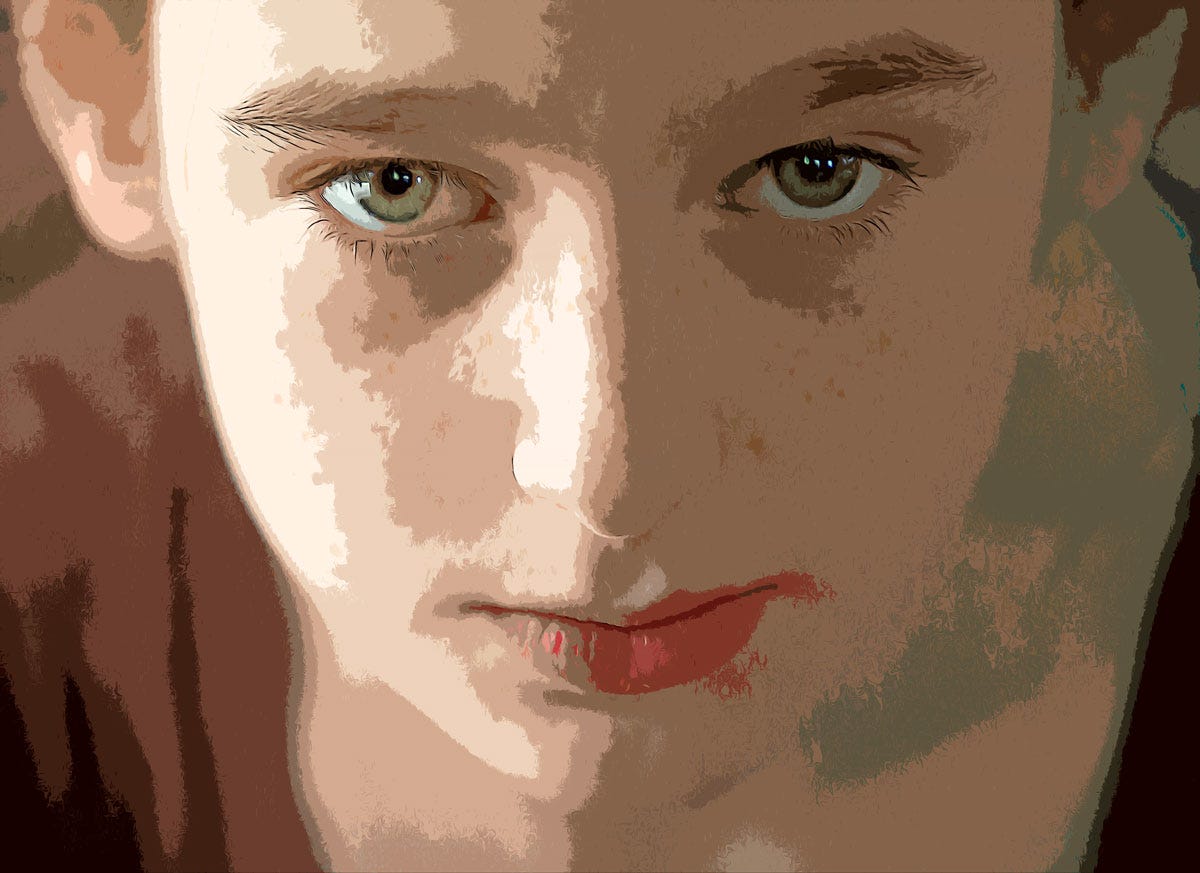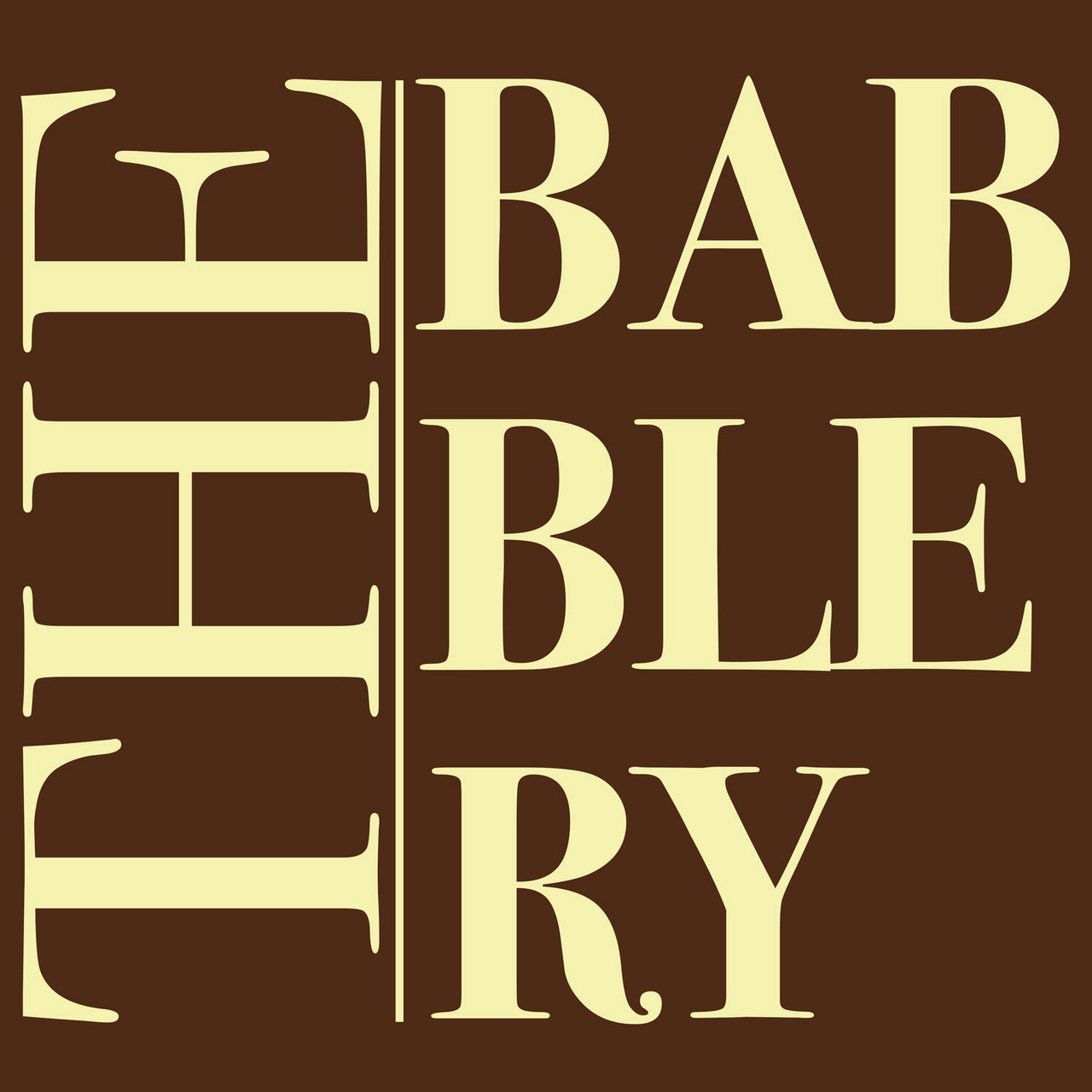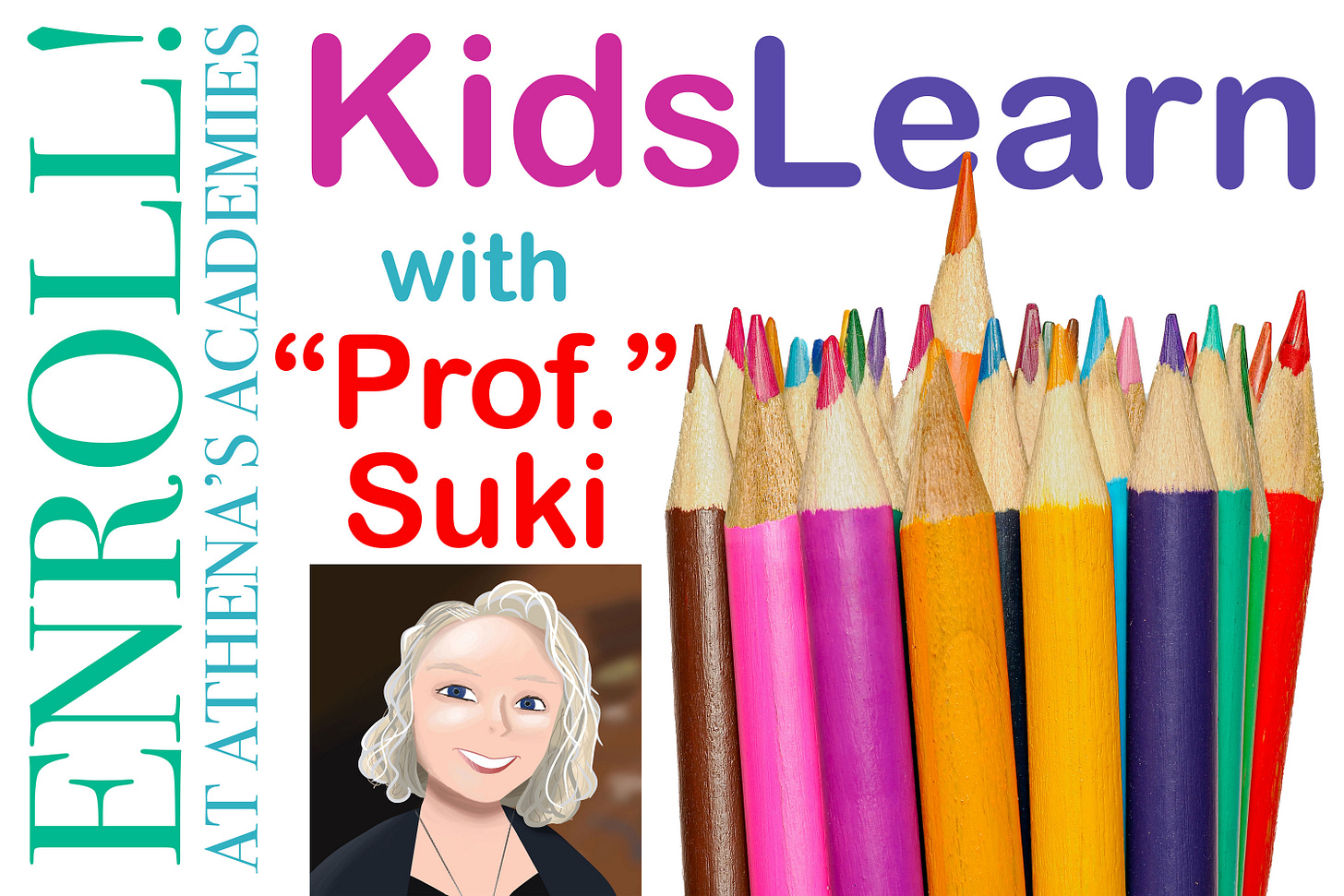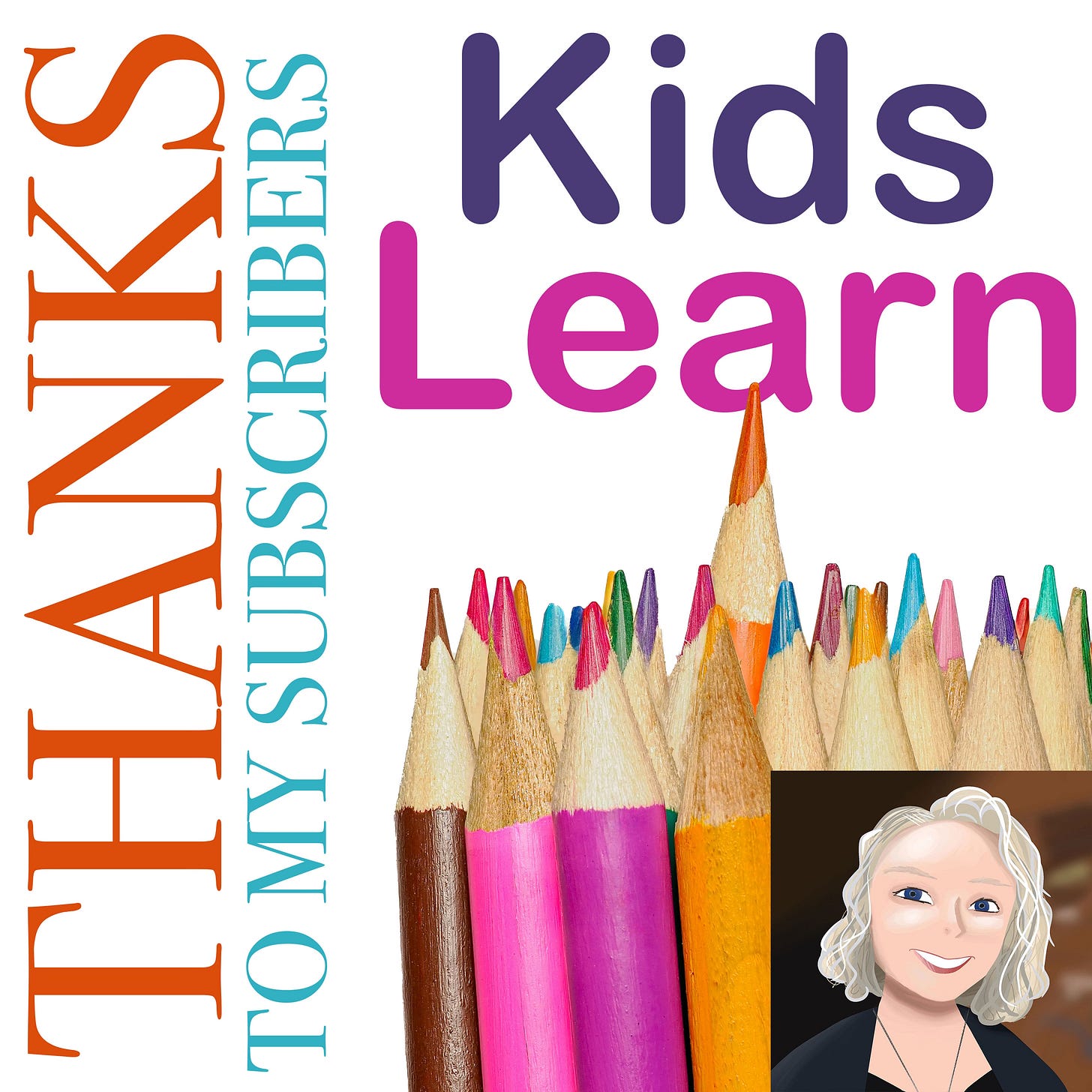The KidsLearn Substack is written by Suki Wessling, known as “Prof.” Suki to her students. Scroll to the bottom for links to Suki’s work and more information.
The upcoming episode of The Babblery Podcast is my interview with the children's book author Carol Fisher Saller. I've been thinking a lot about children's books, not just because of interviewing her, but also because I am working on publishing my next one, a middle grade novel called The Fairy Cottage.
Today what I'm thinking about is about how the children's books that we read as children stay with us and, in Carol's words, they “form a little piece of [the child’s] character that goes forward with them.”
Carrying books forward
The books we read when we’re young do form a part of who we are. A good children's book helps a child see the world around them and better understand their place in it. A good children's book helps a child see the way others interact with the world around them and helps them understand how they can change their own lives if they want to. And a good children's book helps children who are struggling feel that their struggles are not unique to their particular situation.
That might seem like a bad thing, that it makes children feel that they're not unique. But feeling that you are all alone in a struggle that you have is probably the hardest thing about childhood. At least it was for me.
One of the most important books of my childhood, one that I owned a copy of and read and reread, was Harriet the Spy. I had almost nothing in common with Harriet. She lived in New York City. She lived in an apartment building. I learned about such things as dumbwaiters—I doubt there was even one of those in my entire town.
I was nothing like Harriet personally, either. I was shy and not at all bold. I tended to act out of fear more than any other emotion. I was one of five children. And unlike Harriet, who went out and explored when she was left to her own devices, one of my favorite places to go was the closet in my bedroom.
My father is notorious in our family for having found every pocket of dead space in any house they lived in and developed it into storage space. Inside the closet in my bedroom, a little chest-high door opened into a little storage room that was above our front hall. So essentially, I disappeared. For hours on end, I would disappear with a flashlight and a book and the yarn dolls that I had made, which I loved more than any doll I'd ever bought.
To be an unlikable child
Harriet was a soulmate to me for one particular reason: She was a girl who nobody liked.
As a child, I couldn’t shake my deep suspicion that nobody liked me. I was never a kid who had a friend group. I had friends, but I was always sure that I was saying inappropriate things, that I didn't understand the rules of having friends. I never told anyone about this. I know that in my modern community, if a child told their parent or a teacher or a therapist that they felt this way, they would be evaluated. They would be given social skills support. They would go to therapy. But in my Midwestern town with five children in my family, I think my parents were just pretty happy that I got great grades and didn't cause any trouble. They had bigger fish to fry. They weren't neglectful of me, but nothing about my behavior ever raised alarm bells to them and shouldn't have.
I was reading Harriet as a girl in a small town in the middle of nowhere who felt that no one liked her, and that her friends didn't really know her because she was spending a lot of time trying not to say things that were not appropriate to the situation. I loved seeing Harriet be ostracized and disliked, not because it thrilled me, but because it told me that there were ways to get through this.
To be a child who does bad things
When I was a child, I did some wrong things. A song that came out when I was a young adult, "I Kicked a Boy," spoke to me because I literally did that. One day at school a couple of girls egged me on to go up to a boy, this sweet small boy who I remember becoming a beautiful young man in high school. And these girls somehow got me to go up to him and kick him in the shins. Now, why would I have done that? I don't even know. I can't remember. I remember this sense that they got me excited, that this would be an exciting thing to do, but it just was so clearly wrong. And he looked so confused as to why this weird shy girl who had never spoken to him came up and kicked him in the shins. My only consolation is that I'm sure I hardly hurt him because I was no athlete!
In the Harriet the Spy, Harriet does something wrong. She violates people's privacy and trust, and yet she survives. She gets through it. Just knowing that there are weird kids, kids who don't fit in, kids who do weird things, was so important to my childhood.
We see ourselves and not ourselves in books
Children's books aren't just about entertainment, though they should be entertaining. They're about helping kids see experiences that intersect with theirs, and in words which allow the readers to picture the story through their experiences. There were films I liked as a kid. But if I sat down and made a list, I could name hundreds of books that influenced me deeply.
The importance of continuing to publish great children's books and to reach children can't be overstated. Children are reading less and less for pleasure, and that's so distressing because in a book about someone not at all like them in a place they have never seen, they might just find themselves.

If you’re interested in being notified when my interview with Carol is released, please subscribe to The Babblery on Substack or on Spotify, Amazon, TuneIn, Apple Podcasts, and YouTube.











Suki, I'm amazed that you mentioned Harriet the Spy, because I don't think it came up in our conversation, and it was absolutely one of my very favorites as a child. In fact, my sister and our close friend Jill and I copied Harriet and carried notebooks around and spied on people and wrote things down. However, I re-read the book last year after and was shocked at how dark and subversive it was. It wasn't what I remembered. I know I didn't understand when I was young how useless Harriet's parents were, and that Harriet was crushed by grief over the loss of her nanny. A truly complex book.